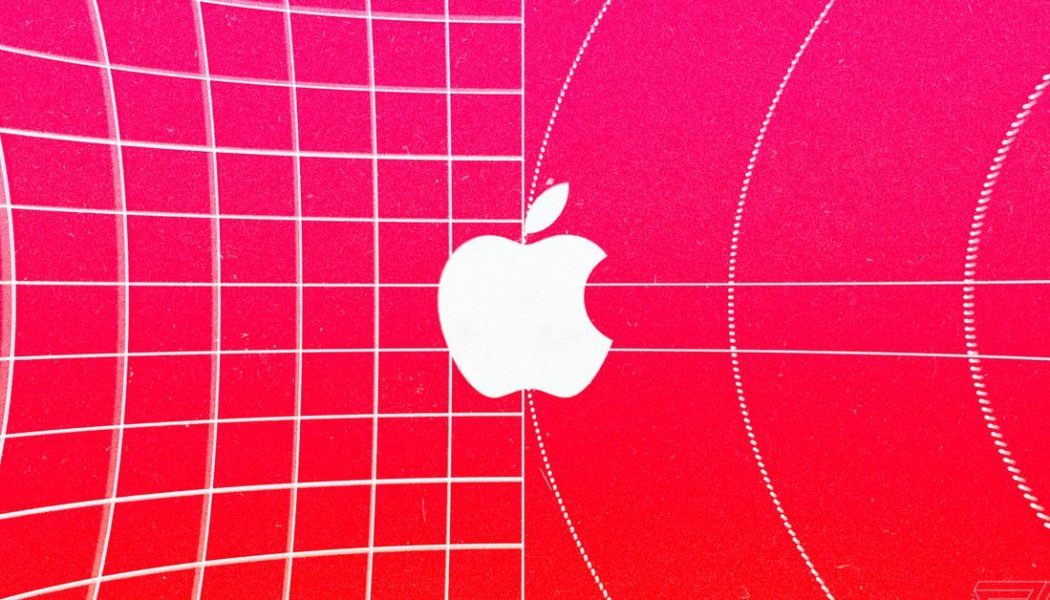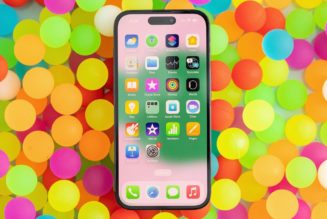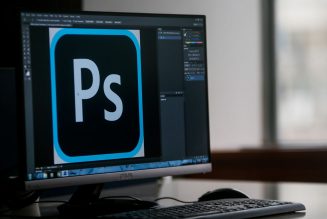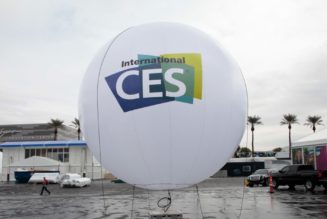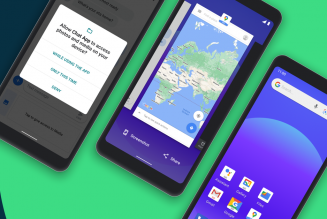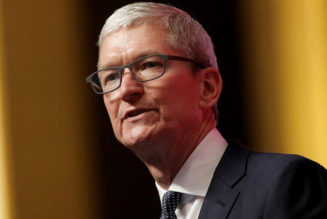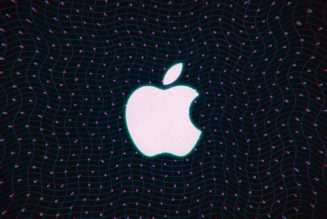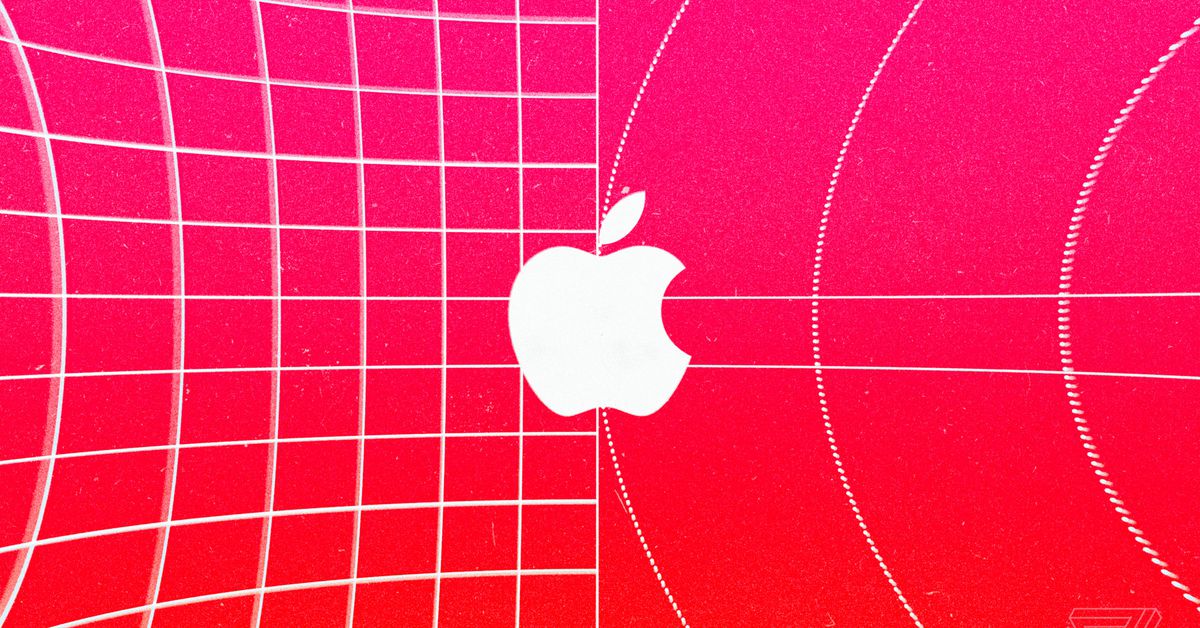
As we await the beginning of Apple’s latest WWDC keynote and all of the new software products it will unveil, let’s talk about metaphors. Specifically, the metaphors we use to talk about Apple’s ecosystem. The go-to for years has been it’s a “walled garden” — here’s Joanna Stern at the Wall Street Journal making that case in a literal walled garden — but I’m not sure that’s the best one anymore.
It’s worth kicking around some different ways of describing Apple’s ecosystem in this moment because of the nature of keynotes — even online-only keynotes. Apple is the master of crafting narratives around its products that become an organizing principle for understanding what those products are. Those narratives aren’t intellectual exercises, they’re stories told to change how you feel about Apple and its products.
There’s nothing inherently nefarious about Apple telling a story about itself and its products, but right now there are more counter-narratives than there ever have been. Apple is facing antitrust scrutiny from governments around the world, from its Epic lawsuit, and from the very developers it is addressing today.
Having some metaphors in your back pocket is a good starting point to craft your own narrative rather than accepting any of the above.
Metaphors work because they let you apply the things you know and feel about one thing and apply them to another thing. They help organize your thoughts and can inspire you to look at a device in a different way. Steve Jobs was a master of this way of thinking. Is a computer a bicycle for the mind or is it a truck?
[embedded content]
[embedded content]
The answer is, of course, it’s both and neither. Metaphors are never one to one — otherwise they’d be definitions. (Sidenote: I invite you to consider whether “computer” is best thought of as a metaphor instead of a definition when you think about whether or not the iPad is a computer.)
So that “walled garden.” It is, first and foremost, a garden — it is tended, beautiful, and calming. It’s very nice to be in Apple’s world. Most things work together in harmony, and it’s often hard to forget there’s a big, big world of apps and services outside those walls. You can very happily use an iPhone to do almost anything you’d want without ever downloading a third-party app. You’re protected in some ways by those walls and — especially on the iPhone — your privacy is in some ways ensured.
It’s a good metaphor! But the destiny of all metaphors is to become cliché. Through use and familiarity, they lose their emotive and explanatory power. When I call Apple a walled garden, it’s likely you know exactly what I mean and have already had the rest of the discussion in your head. The metaphor has lost the ability to help us understand more than we think we know. So let’s keep “walled garden” around, but think about the other metaphors we might use.
One is the “Apple Tax,” the 30 percent (or 15 percent if you’re able to wrangle it) cut of every digital transaction Apple takes on the iPhone. It’s at the center of the Epic vs Apple lawsuit, another Supreme Court case facing Apple, Spotify’s complaint in the EU that has led to government action, and more.
Lots of people hate taxes, but they are meant to pay for valuable shared infrastructure. But then again maybe Apple already covered those costs by selling iPhones, so the Apple Tax is egregiously high — or, if you prefer a different metaphor with legal overtones, maybe it’s rent-seeking. Something about calling Apple’s cut a “tax” strikes me as a little over the top; the 2021 equivalent of spelling Microsoft with a $ in place of the s.
During the Epic vs Apple trial, a new metaphor popped into my head and I can’t shake it. As I was looking at the emails that Apple executives were sending each other and reading their testimony during the trial, I kept thinking I’d seen this kind of behavior and even some of the justifications before. And so here it is:
Apple is a carrier.
I mean “carrier” as in cellular network carrier, as in Apple is Verizon or T-Mobile or (shudder) AT&T. Here’s how the metaphor works: The most important thing to any carrier is feeding the Angry God of ARPU (average revenue per user). That number must go up to please shareholders and pay executives, and the carriers have engaged in any number of shenanigans to make it happen.
Carriers have forced pre-installed crapware on phones since the beginning of apps on phones, well before the iPhone. Examples are too numerous to count, but I’m talking about more than just pre-installed Candy Crush-style games. Users have always been encouraged by the design of the phone and the restrictions placed on the networks themselves to do things that make the carriers more money.
Verizon made data buttons designed to be clicked by accident so you’d be charged. Sprint charged a daily fee to users who had the gall to access the web directly instead of using its WAP data portal. AT&T famously blocked FaceTime from working on its network unless users paid for more expensive data plans.
Every carrier has required wholly unnecessary navigation apps to be pinned to the launcher. Verizon used to go even further, literally disabling GPS on smartphones on its network. That way it could force users to use (and pay for) its own navigation app.
All of this is egregious behavior that goes far beyond the practices Apple engages in on the iPhone, but the exercise of control in order to make more money is the same.
Apple uses its absolute control of app distribution on iOS to pressure developers into adding in-app purchases, creating more opportunities for the company to take a cut. And Apple freely puts notifications and advertisements for its own services on the iPhone while limiting what other apps are allowed to do. A prompt to sign up for an Apple Card here. Apple Music offer there. Arcade, Fitness Plus, Apple News Plus, an offer to get a warranty at the of the main Settings app. It’s a lot.
When you have to reset all your iPhone settings it becomes painfully clear that Apple apps have a different set of rules than everybody else when it comes to allowing notifications by default. pic.twitter.com/C75anymrJw
— Dieter Bohn (@backlon) January 23, 2021
I admit it’s not fair to say Apple is as bad today as the carriers were back in the day when it comes to squeezing dollars out of users or developers. Nor is it fair to argue that Apple’s forays into content with TV Plus are the equivalent of AT&T’s flailing efforts at merging a TV network with a cellular network.
It’s not fair, but the tune sounds familiar because the parallels strike a chord. And the bitter harmony that I hear is the stifling of innovation to maximize profit.
Apple forces all apps selling digital goods of any kind to use its payment system and pay its cut. The arguments for why Apple thinks that is necessary are well-known. But the effects of that (and other) rules are that new and innovative business models simply aren’t possible. Instead of paid upgrades, developers must resort to subscriptions. The nascent market to pay creators directly on services like Twitter and Substack must account for Apple’s platform fees. Instead of game streaming apps, there is… well, nothing.
Of all the rules of the Apple App Store, to me the most telling is the “anti-steering” rule that prevents app makers from even hinting that there might be alternate ways to pay for things without using Apple’s in-app purchase system.
Take Ring, the division of Amazon that sells smart home gadgets. Because of these anti-steering rules, it doesn’t allow you to sign up for a subscription in its iPhone app. Instead, you are directed to an informational web page. But Apple’s rules extend even to that web page, hosted on Ring’s own website. It contains no information about how much a subscription costs, no links to sign up, or any other actually useful information. To get around Apple’s rules, Ring instead has a video and a chat bot that will eventually tell you how to subscribe.
Similarly, the chat bot requires a few extra interactions before you get to a subscribe page.
In other words, the ways Ring tells you how to subscribe on iOS appear to be designed to get around automated review and maybe even light human review. Incredible!
— Dieter Bohn (@backlon) June 5, 2021
The most revealing moment of the Epic v Apple trial came perhaps at the end, when Judge Yvonne Gonzalez Rogers grilled Apple CEO Tim Cook on its policy of refusing to let apps even acknowledge the existence of ways to pay for digital goods outside of Apple’s ecosystem. Here’s Adi Robertson on that exchange (emphasis mine below):
“If they wanted to go and get a cheaper Battle Pass or V-Bucks, and they don’t know they’ve got that option, what is the problem with Apple giving them that option?” she asked.
“If we allowed people to link out like that, we would in essence give up our total return on our [intellectual property],” Cook said bluntly. Apple has talked repeatedly about the work it puts into maintaining the App Store and the iOS platform, and it’s accused companies like Epic of wanting a free ride.
Rogers made the opposite case. “The gaming industry seems to be generating a disproportionate amount of money relative to the IP that you are giving them and everybody else. In a sense, it’s almost as if they’re subsidizing everybody else,” she said.
Cook countered that Apple’s many free apps attracted a larger audience than developers could get on their own. “We need a return on our IP. We have 150,000 APIs that we create and maintain, and numerous developer tools, and the customer service piece of dealing with all these transactions,” he said.
Cook later pointed out that by offering so many free apps on the App Store, it was bringing customers in for the paid apps as well. “I view that we are creating the entire amount of commerce on the store, and we’re doing that by focusing on getting the largest audience there,” he testified.
Before the iPhone, carriers could (and did) point to any number of smartphones and rightfully boast about the incredible things those phones enabled. The Blackberry, the Treo, the Moto Q, and more all did things that nobody would have thought possible just a few years before. But the carriers would take credit for them while at the same time making demands that kneecapped those phones’ capabilities. They used their monopoly on wireless customers to dictate phone design, software capabilities, and business models.
The result was a series of great phones that were still less than they could have been. I don’t know if any of them could have become the iPhone, but I do know that it wasn’t even possible because they didn’t have the leverage to tell the carriers to leave them be.
The great irony is that the only thing that broke the dam on innovation in mobile was the iPhone itself. Steve Jobs was able to tell Cingular (now AT&T) to just accept whatever he made, sight unseen — and that was a key reason why the iPhone was great.
And by continuing to keep them from meddling, the iPhone kicked off a wave of mobile innovation that’s still crashing today.
Given the opportunity again, I have no doubt that the carriers would find ways to exert control, feed the Angry God of ARPU, and thereby stifle innovation. But Apple effectively took that power away from them — but then kept it for itself. The question now is what Apple intends to do with that power.
